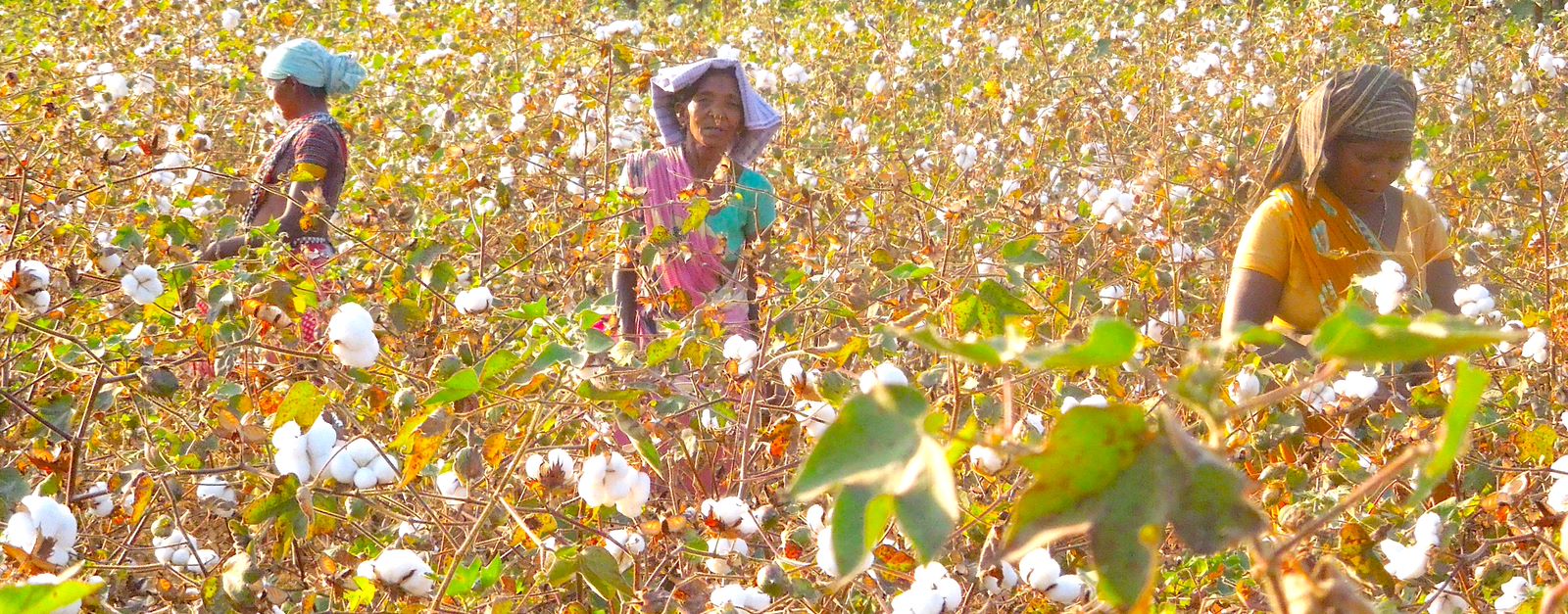Non-profit Grameena Vikas Kendram introduced the sustainable, eco-friendly and financially viable Raddis Cotton System to farmers.

Women in a Raddis cotton farm in Manyam district of Andhra Pradesh. (Supplied)
Nimmaka Naramma of Gummadiguda in Andhra Pradesh’s Parvathipuram Manyam district is a happy woman today.
Honeybees and sparrows that were part of Naramma’s childhood memories have now returned to her farms after a non-profit organisation intervened in the village’s farming practices.
The change that made Naramma happy had many takers at the United Nation’s Biodiversity Conference (COP- 15) held in Montreal, Canada,last month.
The Grameena Vikas Kendram (GVK) Society for Rural Development, the non-governmental organisation from Andhra Pradesh, showcased the success story of the state’s cotton farmers at COP-15 held between 3 and 19 December.
The biodiversity benefits and livelihood gains that GVK’s different approach to farming brought about caught the attention of the participants at COP-15.
Impressed by the success stories of Andhra’s marginal cotton farmers, representatives from Mexico and Papua New Guinea evinced interest in replicating GVK’s approach to farming in their respective countries.
Chaired by China, COP-15 on biodiversity saw the participation of governments, private businesses, NGOs, academia, faith-based organisations, indigenous people and local communities, and intergovernmental organisations.
“COP-15 focused on protecting nature and halt loss of biodiversity around the world. Biodiversity and its benefits are fundamental to human well-being and a healthy planet,” GVK vice-president Sarat Gidda told South First.
“At the conference, governments committed to initiate urgent action to tackle the environmental crisis we are facing. I presented the success story of Andhra cotton farmers,” he added.
GVK introduced the Raddis Cotton System to the tribal farmers. One of the world’s first regenerative organic cotton programmes, the system improved vulnerable indigenous women farmers’ livelihoods besides regenerating the environment by harnessing the potential of nature-based solutions and agroecology.
“By bringing one acre under the Raddis System, we create the potential to sequester about 3-4 MT of carbon annually. Improved biodiversity and soil water storage are key features of the Raddis farm,” Gidda said.
“We are currently working with more than 2,200 farmers on 2,700 acres in Manyam and Alluri Sitharama Raju districts, promoting this leading global programme on regenerative agriculture,” he said, adding that GVK is aiming at covering more than 10,000 acres in 2023 with a goal of reaching 10,000 farmers and 30,000 acres by 2027.
“We aim to improve the farmers’ household income by 50-75 percent. Additionally, an extra income can be generated by tapping into the emerging carbon markets,” he explained the benefits of the Raddis system.
“We were able to pay the farmers ₹76 to ₹80 per kg of cotton, whereas they were getting less than ₹50 per kg in the past. Besides, this new system helps improve biodiversity,” Gidda added.
Cotton, generally, is a water-intensive crop and the use of synthetic fertilisers releases nitrous oxide, a greenhouse gas, into the atmosphere.

Sarat Gidda with Executive Secretary General of United Nations, Elizabeth Maruma Mrema, at COP-15. (Supplied)
“But it need not be this way. We know cotton has so much to offer as long as it is cultivated the right way,” he pointed out.
He also said every gram of pesticide, every seed of GMO (genetically modified organism), and every kg of synthetic fertiliser not used is a win for the human and environment’s health.
Under the Raddis system, GVK offers natural solutions to cotton farmers that increase water retention capacity by 20-30 percent, eliminate toxic pesticides, and synthetic fertilisers, sequester carbon in the soil, remove CO2 from the atmosphere, and eliminate GMO seeds.
The system also doubles the income of farmers by increasing premiums and reducing the cost of cultivation.
Explaining how the Raddis system saves water, Gidda said that in regenerative organic agriculture, soil organic matter is increased.
“This is done by a combination of adding soil inoculants, covering the topsoil and adding more organic matter to the soil. When soil is covered and organic matter is present, the water retention capacity of soil increases significantly,” he said.
“As soil organic matter increases, there will be a corresponding increase in flora and fauna. As the fauna walk around, they disturb the topsoil, creating air pockets. As the soil temperature is lower since the flora covers them, the air that flows through increases moisture in the soil. As you can see, a forest never dries up. We mimic similar conditions on the Raddis farm,” Gidda explained.
Nimmaka Naramma’s Gummadiguda is a village spread over 155 hectares. She has been farming in her three acres since 2017.
The tribal farmer had been using synthetic fertilisers and herbicide-tolerant cotton seeds. But from 2018, she has been following the Raddis system and is now a regenerative farmer.

Nimmaka Naramma
“Naramma has been receiving non-BT cotton seeds from Grameena Vikas Kendram at zero percent interest rate. She is trained in low-cost regenerative agriculture methods and provided with a market that paid her a premium price of at least 10 percent over the market price,” Gidda said.
Naramma said her favourite sparrows and honeybees never entered her farm after she started using pesticides earlier. She recalled how her chicken would refuse to eat crop residue from these farms.
Her son, who used to spray pesticides, fell sick and visits to the hospital became very frequent.
“Now I use cow dung for manure and have learnt to prepare at least five natural concoctions using the plants in my kitchen garden to fight pests instead of employing harmful chemicals,” she said.
“Also, my favourite sparrows have now returned to the farm,” Naramma chuckled.

Jul 26, 2024

Jul 26, 2024

Jul 26, 2024

Jul 25, 2024

Jul 24, 2024

Jul 24, 2024